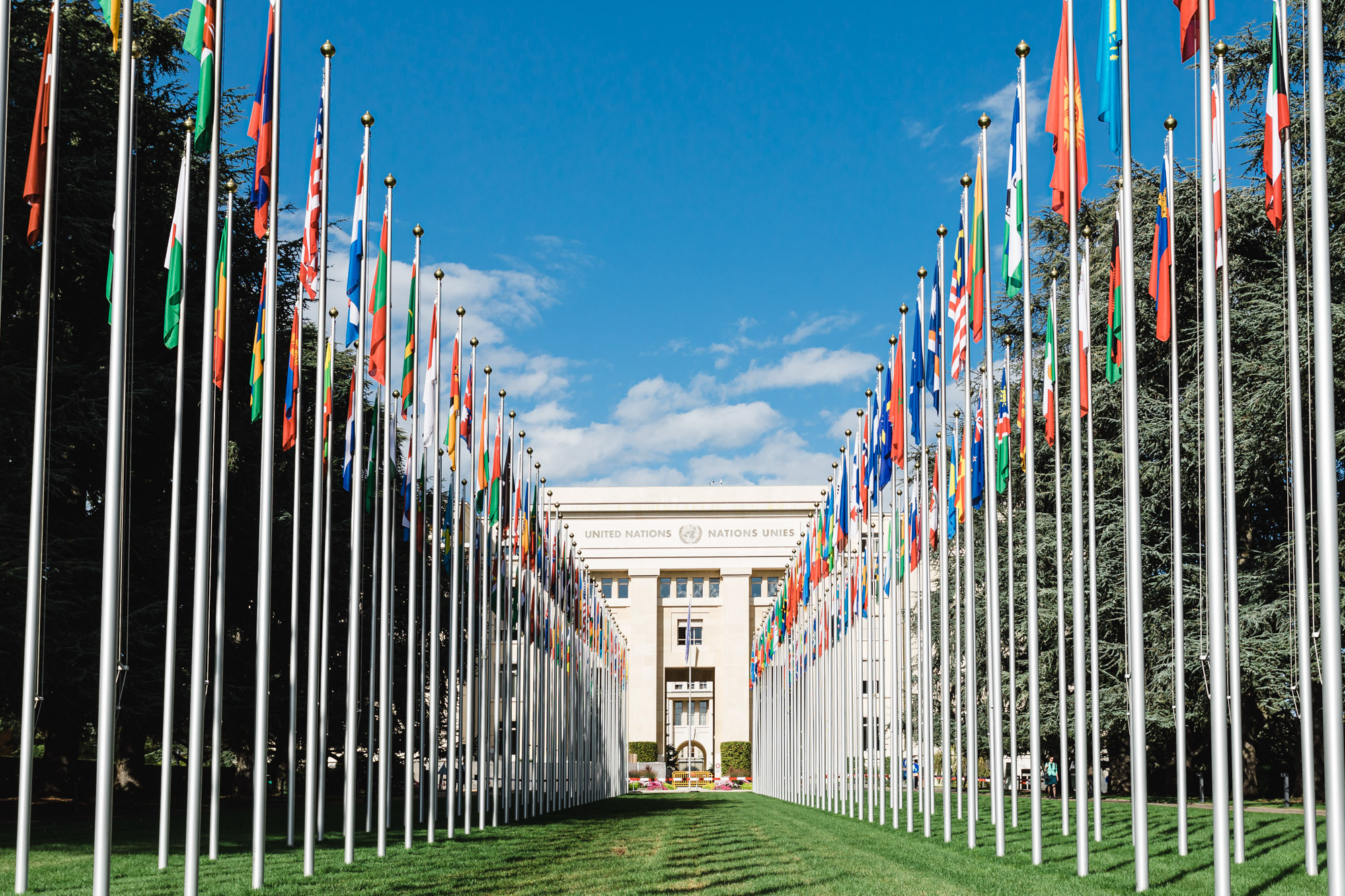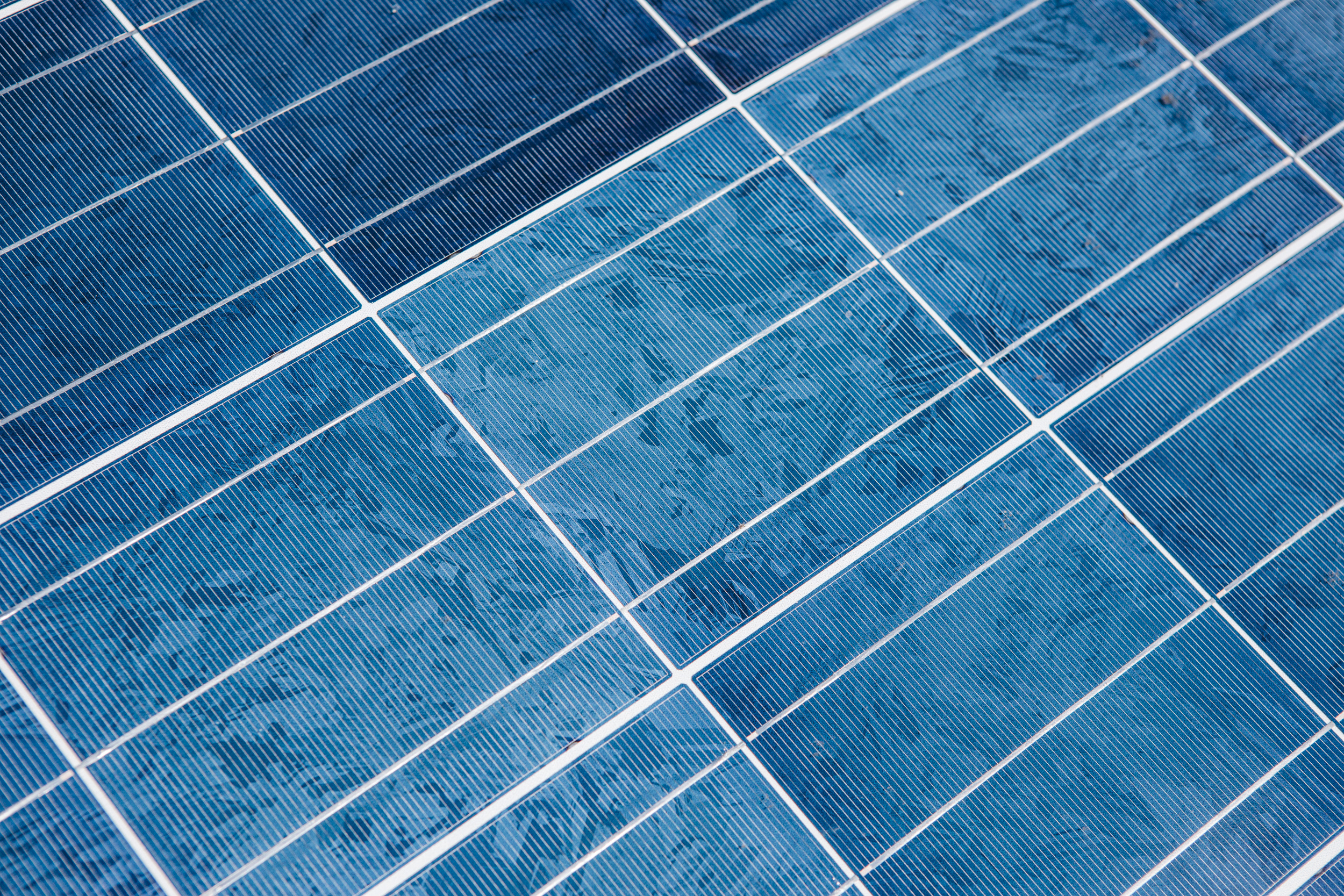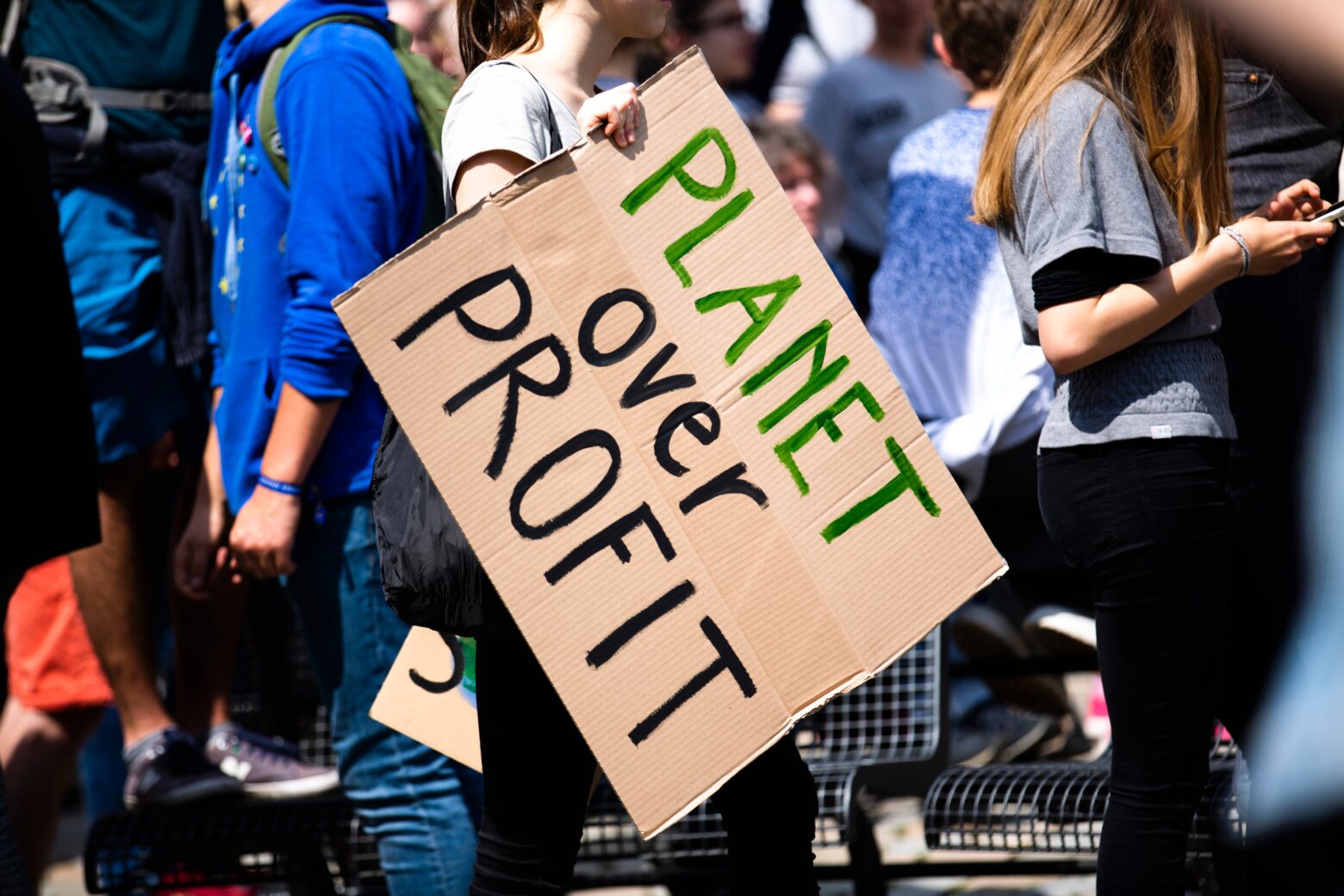The climate and the people. Responses of the United States and the European Union to the climate crisis. China’s electric power sector transformation. Pledge now to transforming agricultural innovation. Financing community energy – unlocking the finance needed to speed up renewables development. Climate action, gender equality and resilient health systems. Discover these and more online events of the week!
You can also subscribe to Climate Online’s newsletter to be reminded about weekly event updates by e-mail:

Biodiversity & Environment
12 – 16 April
“IUCN One Nature, One Future Global Youth Summit” by International Union for Conservation of Nature – IUCN
The Summit will strengthen connections between young leaders and their existing global networks, encourage interdisciplinary learning, provide a space for broader storytelling on conservation, and add momentum to growing youth movements for nature and climate. During this unique time of history, virtual spaces open the opportunity for greater inclusivity. Youth from around the world are invited to participate in youth-led capacity building workshops, networking events, and contribute to an outcome document to be delivered to IUCN’s World Conservation Congress in 2021.
13 – 14 April
“Resilience and the Ocean-Climate Nexus: Expert Workshop” by OECD
Ocean and climate are inextricably connected. The ocean is an essential carbon deposit, but it is also being increasingly affected by the impact of climate change. In this two-day workshop participants will explore the climate impacts on the ocean and how to build climate resilience.
15 April, 16:00 – 17:00 CEST
“WikiForHumanRights: Right to a Healthy Environment!” by Wikimedia Foundation, UN Environment Programme, and UN Human Rights
Join this special live discussion focused on the importance of public knowledge about the human right to a healthy environment. The event will launch this year’s #WikiForHumanRights campaign, a global call to action for volunteers to write and improve content on Wikipedia about human rights, environmental health, and the range of communities impacted by convergent environmental crises of climate change, pollution, and biodiversity loss.
15 April, 19:30 – 20:00 CEST
“A Rescue Plan for Nature” by New Scientist and UNEP
Join a top-level panel of scientists, conservationists and policymakers as they discuss how our disregard for nature caused covid-19 – and how we can seize a unique opportunity to build back better.

Climate Policy & COP26
12 April, 17:30 – 19:00 CEST
“Transition Finance Series – Latin and Central America: Financing a Sustainable Future” by Climate Bonds Initiative
Transitioning to a zero-carbon economy remains one of the greatest challenges facing the planet, critical to ensuring we hit international targets to tackle climate change and save the natural world from irreversable degradation. In LATAM, the effects of climate change and the risks associated rise in global temperatures are significant: rising sea levels, increased frequency and severity of storms as well as droughts, wildfires and changes in agricultural patterns and yields. Mobilising transition finance can tackle the challenges that lay ahead for the country, as it is tasked with reaching it’s international climate targets…
12 April, 19:00 – 20:30 CEST
“Environmental Leadership: Latin American Perspectives on the Climate Crisis” by Wilson Center
How have U.S. and Latin American countries addressed domestic obstacles and major challenges concerning sustainable development? Will ambitious climate policy speed up post-pandemic economic recovery? How should leaders in Latin America and other developing regions best partner with the new U.S. administration, including in the run-up to COP 26, the UN Climate Conference taking place this November in Glasgow? Join a high-profile discussion of these and other issues with senior government officials responsible for formulating climate and environmental policy.
13 April, 15:00 – 16:00 CEST
“Aligning finance for the net-zero economy: new ideas from leading thinkers” by EIT Climate-KIC and UNEP FI
This event is a part of ‘thought leadership’ online series aiming to inspire financial actors worldwide to move from risk to alignment, challenge current assumptions around climate alignment and develop ideas and concepts on how alignment can best be achieved. This series convenes innovators and industry experts to provoke discussion, challenge the status quo and guide the transformation of business and finance towards a sustainable future.
13 April, 15:00 – 16:30 CEST
“Carbon Pricing Assessment & Decision Making: A guide to adopting a carbon price” by World Bank Group and Partnership for Market Readiness – PMR
Many jurisdictions are considering carbon pricing to help achieve climate commitments, including Nationally Determined Contributions (NDCs) under the Paris Agreement and net zero targets. However, knowing where and how to start can be challenging. What analysis is required? What issues need to be considered? Which carbon pricing instrument is right for a jurisdiction? How should analysis be presented to decision makers?
13 April, 16:00 – 17:30 CEST
“Climate Change, Modern Slavery and a Just Transition” by Anti-Slavery International
Climate change and environmental destruction have profound implications for human rights and are driving vulnerability to modern slavery. People who are already among the most vulnerable are particularly hard-hit. Climate action needs to happen fast, but it also needs to be participatory and fair. This is where the growing agenda around a ‘just transition’ to a zero-carbon future comes in, with a particular focus on respecting the rights of people on the frontline of climate impacts.
14 April, 14:00 – 15:00 CEST
“Communicating Carbon Pricing” by International Carbon Action Partnership – ICAP
Outside the world of economics, ETS – and carbon pricing generally – is frequently misunderstood and misrepresented. This can undermine political support for carbon pricing, as well as public acceptance. What are common mistakes to avoid, and what are effective ways to improve public communication on carbon pricing?
14 April, 14:00 – 15:30 CEST
“The Upcoming EU Legislation on Methane Emissions – What Should Be in It?” by Florence School of Regulation – FSR
Following the EU Methane strategy’s adoption on 14 October 2020, the EU Commission will unveil the legislative proposal on measurement and mitigation of methane emissions. The companies and NGOs, both individually and in the industry groups, such as the Methane Guiding Principles, have been working to respond to the questions raised by the EU Commission in the questionnaire. This event is an occasion to discuss the key challenges and considerations which arise from these discussions, as well as the way forward. On which issues is there a consensus? Where are divergencies and controversies?
14 April, 15:00 – 16:30 CEST
“From Theory to Practice: Launch of the ETS Handbook” by World Bank Group and Partnership for Market Readiness – PMR
Growing ambition in jurisdictions’ climate targets has resulted in an increased adoption of Emissions Trading Systems (ETSs). Currently, 38 countries, 18 states or provinces, and 6 cities have adopted an ETS and additional systems are under development. While not a silver bullet, an ETS can help ensure jurisdictions meet their targets at least cost. However, to maximize its effectiveness, an ETS needs to be designed in line with a jurisdiction’s context. This event will mark the release of the updated version of the ETS Handbook jointly developed by the PMR and the International Carbon Action Partnership (ICAP). The updated Handbook has drawn from recent learnings gained over the last five years as jurisdictions around the world have gathered experience in designing, implementing and refining ETSs.
14 April, 18:00 – 19:30 CEST
“Nowhere to go: The U.S. & EU Responses to the Climate Crisis” by E&U For The Climate and European Horizons Amsterdam
By comparing Washington’s and Brussels’ green policies, this event will explore which instruments are available to governments and civil society organisations to address the environmental crisis. This process is going to be exemplified by recent cases that show both the limits and opportunities of the EU and U.S. climate responses. The focus of the event will not be exclusive to the Global North: as climate change disproportionately damages developing countries, the discussion will also cover and assess the perspectives and the challenges for the consistent and unconditional fulfillment of international environmental justice.
14 April, 20:00 – 21:00 CEST
“Scaling Up Voluntary Carbon Markets in Latin America” by Initiative 20×20 and World Resources Institute – WRI
To fund and scale up their work, restoration project developers are increasingly looking to earn revenue from the carbon that they sequester when they regenerate land and that they avoid emitting when they prevent deforestation. Recognizing the importance of voluntary carbon markets in achieving net-zero emissions, the Institute of International Finance has established a Taskforce on Scaling Voluntary Carbon Markets (TSVCM). Their goal is to create a blueprint for voluntary markets, outlined in their recent report, that could meet much greater demand for carbon credits. Join to discuss the TSVCM and its implications for Latin America:
15 April, 14:00 – 15:30 CEST
“Launch of the 2021 State of the EU ETS Report” by ERCST, Wegener Center on Climate and Global Change, Bloomberg New Energy Finance and EcoAct
During the meeting, the authors will present the Report and their main conclusions, followed by a high-level roundtable discussion on the future of the EU emissions trading system (EU ETS). The State of the EU ETS Report aims to be an independent contribution to the policy debate, which is needed to ensure that the EU ETS is “fit for purpose.” This report discusses the current state of play in the EU ETS, while also identifying a number of issues that will need to be monitored in the coming years. The Report is intended as a “snapshot”, providing policymakers and stakeholders with an overview of how the EU ETS is doing by April of each year, based on previous year data.
15 April, 16:30 – 17:30 CEST
“Do We Need a WTO Climate Waiver?” by Trade Policy Exchange
The Covid-19 crisis has revealed countries’ vulnerability to global shocks, and the necessity to prioritize non-trade issues. These exceptional circumstances have prompted a reflection on the relationship between trade and fundamental non-trade interests & objectives. One of the biggest looming shocks is climate change. Register here.
15 April, 17:00 – 19:00 CEST
“The Climate Action Simulation” by Climate Interactive
Come play The Climate Action Simulation, a highly interactive, role-playing game that uses the En-ROADS model, built by Climate Interactive and MIT Sloan’s Sustainability Initiative, to explore climate solutions. Convened by Climate Interactive’s Andrew Jones in the role of UN Secretary-General Antonio Guterres, you will play the role of an oil executive, a citizen activist, a clean tech entrepreneur or a country president in this virtual event and negotiate on behalf of your team as you collectively work to limit warming to 2°C. The game will run two hours and will be followed by an optional conversation about possible diffusion and adaption of the game into new forms.
15 April, 18:00 – 19:30 CEST
“US Climate Ambition in 2030: Insights from Recent Modeling” by Resources for the Future – RFF
Nationally determined contributions (NDCs)—country-specific commitments to reduce emissions—are the backbone of the Paris Agreement. In 2020, countries were requested to submit new or updated NDCs. The idea of a 50 percent reduction in greenhouse gas emissions (from 2005 levels) by 2030 has emerged in the United States as a focal point of discussions around future commitments in order to put the country on a path to net zero by midcentury. Join the webinar on what’s needed to achieve economy-wide, deep decarbonization in the United States. The conversation included words from six leading analysts who have modeled possible net-zero pathways.
16 April, 20:00 – 21:00 CEST
“Protecting Vulnerable Communities from Climate Impacts” by Environmental and Energy Study Institute – EESI
During the event, speakers will talk about the challenges and opportunities involved in protecting physically and socially vulnerable communities from the worst impacts of climate change. They will discuss a new data resource developed by Climate Central that identifies federally-subsidized affordable housing at risk of chronic flooding due to sea-level rise; property-level climate risk assessment tools that are being piloted in Miami; a recently published scorecard of state flood-risk disclosure policies; and resilience measures in Los Angeles. Watch live broadcast of the webinar here.

Renewables & Energy Transition
12 April, 16:00 – 17:15 CEST
“Launch of IEA’s reports on Electricity Security: Secure Energy Transitions, Cyber Resilience and Climate Resilience” by International Energy Agency – IEA
Join the launch of IEA’s Electricity Security report which addresses for the first time three key aspects: (1) Secure Energy Transitions, (2) Cyber Resilience, (3) Cyber Resilience. The authors will present the report results, discussing global case studies and recommendations to guide policy actions at the technical, economic and political layer.
13 April, 11:00 – 12:00 CEST
“Renewable Heating and Cooling: The Portugal Perspective” by European Heat Pumps Association – EHPA and European Technology and Innovation Platform
Join to discuss the challenges for achieving 100% renewable heating and cooling in Europe, with a detailed focus on Portugal. Speakers will share information about innovative research and initiatives from the public and private sectors.
13 April, 15:00 – 15:30 CEST
“Climate-safe 1.5°C pathway by 2050: Technology solutions and investment needs” by International Renewable Energy Agency – IRENA
The recent trends show that the gap between where we are and where we should be to achieve the 1.5°C Paris Agreement goal is not decreasing but widening. IRENA’s preview of its World Energy Transitions Outlook proposes energy transition solutions for the narrow pathway available to contain the rise of temperature to 1.5°C and halt irreversible global warming. This webinar will present high-level insights on energy transition technology components and investment needs in setting the world on a trajectory towards a sustainable, resilient and inclusive energy future.
15 April, 9:00 – 11:00 CEST
“China’s Electric Power Sector Transformation” by International Energy Agency – IEA
The main objective of this webinar to provide targeted audiences with insights into China’s electric power sector transition both in the near future (14th Five-year) and in the medium & long run. The focus of this webinar is on cutting-edge energy technologies and deployment options that have received tremendous interest and debate in the energy sector in China, including digitalisation and smart grids, battery storage, distributed energy resources, green hydrogen and sector coupling and electrification.
15 April, 12:00 – 13:30 CEST
“Financing Community Energy – Unlocking the Finance Needed to Speed Up Renewables Development in Europe” by IRENA Coalition for Action Community Energy Working Group and EU Community Power Coalition
This webinar aims at defining and sharing concrete finance needs of community energy projects in Europe. By providing insights into recent research on the role of community energy as a driver of a green energy transition in Europe as well as how and under which conditions community energy projects can be financed, this virtual event will provide a space of informed exchange and an interactive dialogue. Key actors, such as political decision makers, civil society and practitioners, European investment and cooperative banks as well as energy experts are invited to participate in this cross-cutting event and share their experiences, needs and expertise to create common ground for future developments.
15 April, 19:00 – 20:10 CEST
“Atlas of Energy Efficiency Brazil, 2020” by International Energy Agency – IEA
Energy efficiency represents a critical resource to energy systems and the economy, contributing to lower bills, reducing energy waste and increasing competitiveness. This webinar will focus on the analysis of progress with energy efficiency in Brazil, published in the Atlas of Energy Efficiency 2020. This year’s Atlas of Energy Efficiency focuses on five sectors: buildings, the residential sector, services, industry, and transport.
15 – 16 April
“India roadmap for Mainstreaming Energy Efficiency in Residential Buildings” by International Energy Agency – IEA and Bureau of Energy Efficiency – BEE
The IEA along with BEE will be organizing two thematic workshops focusing on different aspects of the roadmap. The thematic workshop aims to bring together expert policy makers, academics, architects and engineers, and industry representatives from India and world to share their knowledge and experience and provide inputs into the roadmap process:
Thematic workshop 1: New buildings, urban planning and clean energy.
Thematic workshop 2: Materials, systems and operations.

Sustainability & Circular Economy
13 and 15 April
“Sustainable Investment Forum Europe” by Climate Action and UNEP FI
The 4th annual Sustainable Investment Forum Europe will discuss long term sustainable capital management philosophy, asset allocation approach and outlook for global markets post pandemic. The Forum, taking place across two weeks in April 2021, will convene asset owners and managers, ratings agencies, banks, UN and Government policymakers, investors, development banks, think tanks, and NGOs committed to driving forward the sustainable finance agenda.
13 – 15 April
“ICLEI World Congress: Virtual Launch” by ICLEI
Every three years, the ICLEI World Congress is the moment for local and regional governments to come together to celebrate and recognize the critical contributions of cities, towns and regions towards sustainable future. This year is critical in so many ways. ICLEI and the City of Malmö are creating a year-long experience to bring together the ICLEI Network in spite of the pandemic. Join online sessions covering multiple topics, such as “Shaping Our Sustainable Urban Future for All“, “Following the Circular Development Pathway Towards Sustainable Cities” and many more.
15 – 16 April
“World Circular Economy Forum + Climate” by the Netherlands and Finnish Innovation Fund Sitra
Did you know that by designing out waste, avoiding pollution and keeping materials in use as long as possible, we can reduce greenhouse gas emissions by about 20%? The event will welcome representatives of governments, international organisations, knowledge institutes, the private sector, and citizens from around the globe to a virtual conference platform, to digitally meet up and discuss the crucial role of a circular economy in achieving climate neutrality.
15 April, 14:00 – 15:00 CEST
“Pledge now to transforming agricultural innovation” by CGIAR’s Research Program on Climate Change, Agriculture and Food Security – CCAFS
This Independent Food Systems Summit Dialogue will enrichen the canvas of perspectives on how food systems can be transformed for a climate-smart future. It will open up space for dialogue on a new Action Agenda for Change developed by CCAFS, and allow stakeholders the opportunity to pledge their support to a global campaign on agricultural innovation, co-chaired by CCAFS and the UK Foreign, Commonwealth and Development Office. The Dialogue will explore opportunities for stakeholders to become an integral part of this year-long campaign, which will see significant announcements and initiatives at the UN Food Systems Summit and COP26.
15 April, 15:00 – 16:15 CEST
“Climate Action, Gender Equality, and Resilient Health Systems” by NAP Global Network, World Health Organisation and Women Deliver
The impacts of climate change threaten people’s health, with risks ranging from injury and death due to extreme weather events, to effects on mental health. Building the resilience of health systems is an urgent priority, particularly in the aftermath of the COVID-19 pandemic. Join this virtual learning session aimed to raise awareness of the need for an integrated approach that addresses the impacts of climate change, advances gender equality, and builds resilience of health systems.
15 April, 16:00 – 17:00 CEST
“The Climate and The People” by Skoll Foundation and Climate Outreach
Equitable climate solutions are not just about reaching a popular consensus, they require us to ensure the voices of all those who will be impacted are actually heard. The latest social science insights are illuminating how communities truly feel about the climate, and are helping us better understand parts of the population who become disengaged by media-prominent activists like Former Vice President Al Gore and Greta Thunberg. As we rise to the challenge of creating a more climate just future, this panel brings together storytellers, social scientists, policymakers, and community organizers who need to work together as never before.

